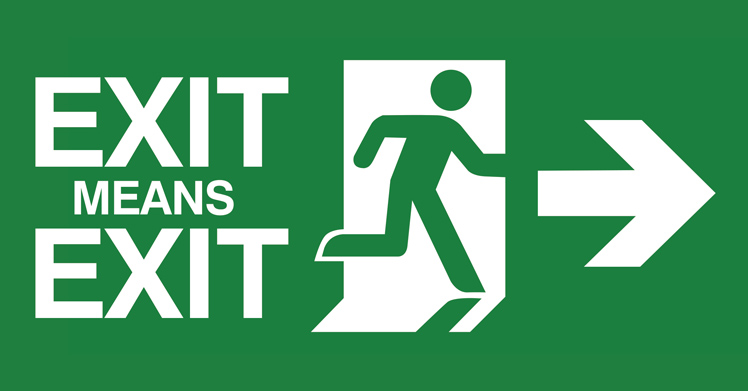As an NHS practice owner, it’s essential that you have a five-year retirement strategy in place. Here, Area Sales Manager, Richard Scarborough examines the need to look at the situation logically, rather than emotionally, and how to maximise goodwill value to ensure your non-working life is the best it can be.
Retirement often means leaving a practice you have built up and patients whom you have treated for many years, often having treated multiple generations of the same family and sharing life’s journey. Reaching the milestone of retirement and facing the finality of exiting your working life can be a time of mixed emotions, but it is a big decision and you need to face it full-on.
What does retirement look like for you? Is it phased or a set date? Will you retire from practice ownership before retiring from dentistry? Who will you sell to? Do you want to sell to a corporate and continue working as an associate? Do you want to sell to an associate and mentor them in practice ownership? There are many potential takes on retirement and routes to retirement so it is vital to prepare well in advance, ideally with a five-year exit strategy.
“Practice valuations will often be based on the last three years of accounts.”
I say five years because if one of your retirement goals is to sell your practice, you need that amount of time to maximise the goodwill value of your practice. Practice valuations will often be based on the last three years of accounts. Given that the year you sell and retire probably won’t be a full financial year, you need four years to present your practice at its best to potential buyers and you are already in a financial year when you start planning.
In a best-case scenario, these accounts would show increasing profits and turnover, as these are the basis of a valuation. A growth curve demonstrates that the practice still has potential and is in a strong position. The big question is, how do you plan to increase profits and turnover in the years before retirement?
“The most logical and straightforward action an NHS practice owner can take is to partially convert to a private practice.”
The most logical and straightforward action an NHS practice owner can take is to partially convert to a private practice. There are various ways of doing this, such as adding specialists who can offer complementary services to generate private income or by a principal/associate-only conversion.
With a mixed practice, you retain your highly valuable NHS contract but also have the opportunity for an additional income stream that increases your turnover and profits, which all adds up to a higher valuation.
NHS contracts are a highly desirable component in a practice due to the ‘guaranteed’ nature of the income and smooth income stream. For private practices, a membership plan can ensure a more consistent cash flow, a more guaranteed income and higher levels of patient loyalty, meaning that private practices with membership plans can attract between 5% and 10% higher valuations than those only offering a fee-per-item service.
“For private practices, a membership plan can ensure a more consistent cash flow, a more guaranteed income and higher levels of patient loyalty.”
For an NHS dentist ‘going private’ in the latter years of a career can seem like an unnecessary stress, but there is significant financial benefit with the increased value of the practice, as well as the potential to spend your later years working at a slower pace with a group of more motivated patients, that have demonstrated their loyalty to you. It can also be a great route to semi-retirement as you can backfill your NHS contract with an associate; you only need to convert sufficient patients to cover the costs of an associate delivering the NHS contract in order to break even.
A good plan provider will be able to advise on the things that need to be considered to ensure a successful conversion, considering not just the private growth and any other conversion goals that you are trying to achieve but also your NHS contract. After all, there’s no point increasing your private income only to face an NHS clawback!
One pitfall that I have seen is dentists coasting to retirement, allowing patient numbers to naturally dwindle and steadily reducing working hours in line with the reducing patient base. I would advise you to avoid this and consider if you are heading this way. All this does is decrease turnover and profits (note that profit declines at a more rapid rate than turnover due to the effect of fixed costs), thereby devaluing your practice. Adopting this approach can mean that you are effectively working for nothing in your latter years as the income that you earn in those years could be offset by the decrease in practice value. A well-planned approach would enable you to reduce your working days without a negative financial impact.
“One pitfall that I have seen is dentists coasting to retirement, allowing patient numbers to naturally dwindle and steadily reducing working hours.”
Of course, you may have other goals for retirement, such as selling the practice to a younger dentist. Increasing the valuation of your practice may not be your key priority, but planning how you are going to achieve your goals invariably increases the chances of success.
As I said earlier, retirement can be an emotionally stressful time; your decisions and goals can at times not appear logical to others or retrospectively to yourself. Planning your route to retirement will allow you to fully enjoy the fruits of your hard labour. After all, you deserve it.
About Richard Scarborough
Richard Scarborough is Area Sales Manager at Practice Plan, the leading provider of practice-branded dental plans. Richard has many years’ experience in the dental sector, including as an Area Manager for a chain of dentists.
[mc4wp_form]
